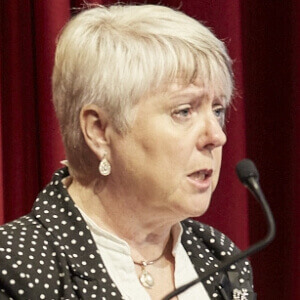BAE Systems Head of Industry Strategy Sharon Wilson gives an insight into how the prime contractors are planning to use industry as a Fundamental Input to Capability (FIC).
To continue reading the rest of this article, please log in.
Create free account to get unlimited news articles and more!
Today I would like to discuss our (BAE Systems) approach to implementing Industry as Fundamental Input to Capability (FIC) and share an example with you.
AIC plans are developed by the prime contractor and broadly consist of the following:
- Capability – developed through technology transfer, typically advanced technologies
- Content – can be part of capability development or standalone content
- Industry Innovation – need to identify opportunities for Australian innovation, R&D, barriers to entry and on-ramps
All three together need to be balanced outcomes in a COTS/MOTS procurement environment, where the design and or large elements of supply usually sourced from overseas.
Capability realisation
It is the prime contractors job to work with its overseas partner to develop the balance. In isolation will be driven by the best commercial outcomes - push/pull driven by the return on investment – price to win
Customer intent
The key ingredient is the customer’s strategic intent - it could be content/technology/sustainment/ or sovereign industry requirements … this driver being taken into account when developing solutions.
Part of the role of the new CDIC board will be to articulate the new Sovereign requirements across the domains. This will be no easy task.
Case study - Collins class periscope an accidental FIC
In 1988, BAE Systems won a build contract under a licence agreement with Barr and Stroud (now Thales Optronics). The contract was for 16 systems and spares, 20 per cent we attained Australian industry involvement in boats one and two, up to 80 per cent by boats five and six, with some export back to UK.
A purpose built facility in SA provided local manufacture of optics, electronics, cables and mechanical parts. By early 2000s capability was reduced to just three key people. A new sustainment contract was awarded in 2002 and the team has now grown to 33 personnel split between SA and WA.
Periscopes are given a major overhaul every seven years. Upgrades performed including thermal imaging, low light tv and digitisation.
Significant obsolescence activities were also required - reverse engineering, life time buys - we have developed a product road map generated for life of type. All in conjunction with our partner Thales and our suppliers.
A local supplier was integral to our success on this program - Ezy Fit marine, based in SA, has invested in a new CNC machine to produce tubes, a CMM measurement machine in a environmentally controlled room and a new facility. I know Thales is looking at the company to make tubes for other customers.
I use this as an example of how the customer’s strategic intent drives industry outcomes. And although, this requirement was all about content, all of the factors were involved - tech transfer, content and innovation. In the beginning the requirement was Australian industry content, not capability, but luckily for Navy and us, it ended up being much more.
So what does that mean to you today?
For government representatives both state and federal -
It helps us to remove some of the barriers to success, such as the cost of non-recurring engineering, specialist infrastructure, training and skills development, facilities. The most important factor for success is working together – the federal and all state governments must complement and not compete, and focus our precious resources, people and money on delivering capability.
For industry and academia -
Lean forward, think about not just what you offer but what you can do with others. We need to learn from the past and do new things. Share your new ideas with us, think holistically about your solutions. We need to collaborate like never before.
In summary
We in industry have been given what we wished for … and now is the time to make the most of these projects; they are real and they are happening. It is up to us to truly deliver to our war fighters industry as a FIC.
Sharon Wilson
Sharon Wilson is the Head of Industrial Strategy for BAE Systems Australia.
She has worked for the company for 25 years. She is a member of the newly established CDIC Advisory Board and is also the Chair of the Northern Advanced Manufacturing Industry Group Management Board which is an industry led not-for-profit organisation delivering Science, Technology, Engineering and Mathematics projects in schools.

 Login
Login








